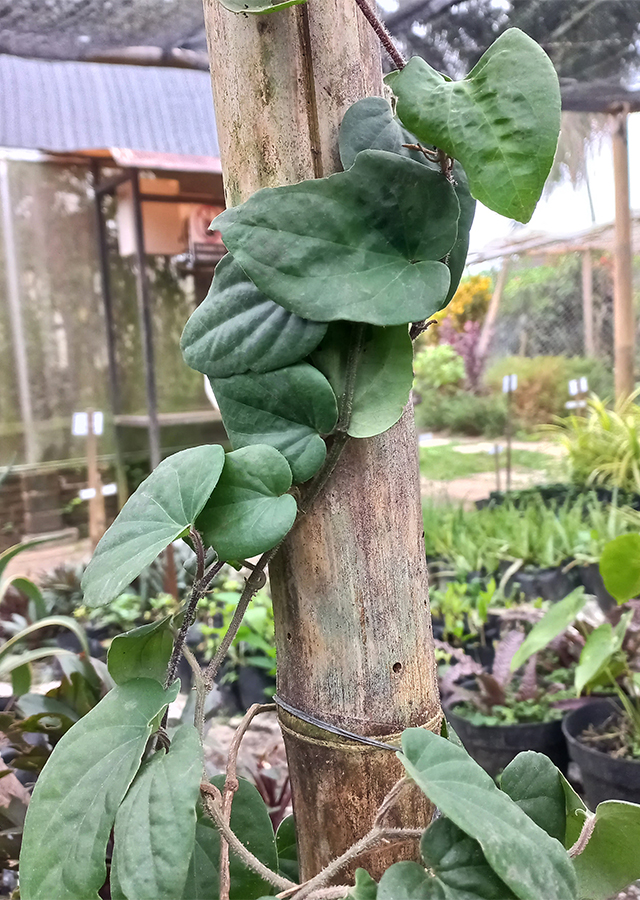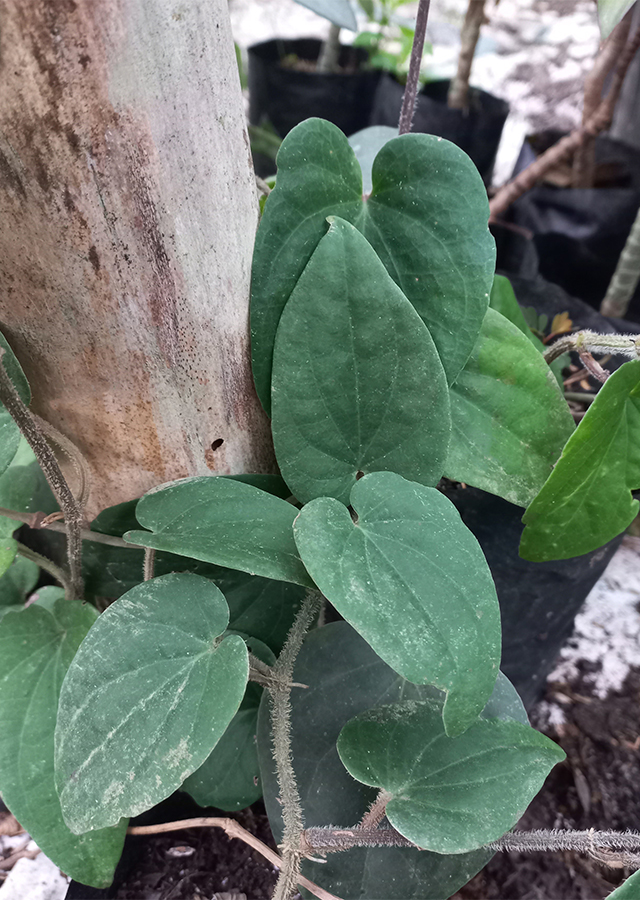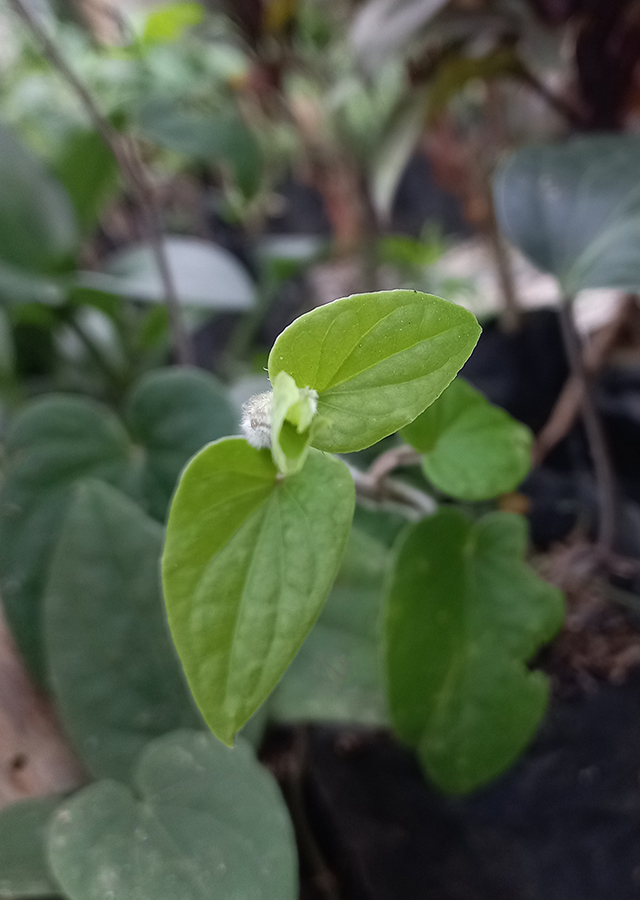Cubeb Pepper
Piper cubeba L.f.
Piperaceae
Location in our garden
Green House



Synonym
Cubeba cubeba (L.f.) H.Karst.
Cubeba officinalis Raf.
Cubeba segetum Miq.
Habitus
Climbers. An evergreen climbing shrub producing stems up to 6 m long
Part Used
Fruit
Growing Requirements
Need Shade
Habitat
Riverbanks
Forest
Overview
Originated from Indonesia and spread to Malaysia, India, Vietnam, and Myanmar. Cubeb is usually grown for its fruit and essential oil. Dried cubeb fruit is used as a spice in cooking, especially Indonesian cuisine. Another use is as a flavor enhancer in gin and cigarettes. However, the important use of cubeb is as a pharmacopoeial ingredient and a source of essential oil (oleum cubebae). In addition, the cubeb plant has health benefits. Cubeb is also widely used in ayurvedic medicine in India.
Vernacular Names
Cubebe (French), Kubeben (German), Kabab chini (Hindi).
Agroecology
Cubeb grows in full or partial shade in humid tropical deciduous forests, mangrove margins and grows from sea level to 700 m. This plant is also found along rivers, forest trails, and forest edges.
Morphology
- Stems - glabrous, segmented, cylindrical and striated, slightly thickened at the internodes and rooted at the internodes.
- Leaves - alternate, ovate-oval or lanceolate, pointed tip, slightly unequal base, flat edge, 10-15 cm long, 4 cm wide, wavy, rough, dark green, smooth, prominent underside, petiole short and sturdy.
- Flowers - unisexual, dioecious, sessile, each with a bract at base, without petals or crown, densely packed, long, cylindrical, stemmed, dense spikes emerging from opposite leaf, two stamens for each flower on male and three pistils.
- Fruits - round, yellowish red, 0.6-0.8 cm in diameter, smooth, wrinkled when dried, stemmed.
- Seeds - hard, globose/round, white.
Cultivation
Propagated by seeds and stem cuttings.
Chemical Constituents
Alkaloids, amides, benzoic acid, chromenes, propenylphenols, lignans, neolignans, sesquiterpenes, terpenes, steroids, kawapyrones, piperolides, chalcones, dihydrochalcones, flavones and flavanones, volatile oils: sesquiterpene hydrocarbons, lignans (cubicin, cubickinine), acid cubein . Piperenol A and B, cyclohexane, crotepoxide, zeylenol, piperine, sesamin, cubenin, hinokinin, clusin, dihydrocubebin, yatein, cubebinionolide, cubebinone, isoyatein, heptahydro naphthalene derivatives.
Traditional Medicinal Uses
- Cubeb is a bitter, antiseptic, stimulant herb with a pungent, turpentine-allspice aroma. Both the fruits and essential oil are used and have diuretic and expectorant effects whilst also improving digestion.
- The immature, dried fruits are used in the treatment of coughs, bronchitis, sinusitis, throat and genito-urinary infections, poor digestion and amoebic dysentery.
- Cubeb oil is antiseptic, carminative, diuretic and a stimulating expectorant. It is used as an ingredient of some throat lozenges.
Part Used
Reference Sources
- Royal Botanic Gardens. Plants of the World Online: Piper cubeba L.f. https://powo.science.kew.org/taxon/urn:lsid:ipni.org:names:681071-1#image-gallery. 04-06-22.
- Prashanth (Ayu). 2022. Easy Ayurveda: Kankola Piper cubeba Uses, Remedies, Research, Side Effect. 23-05-2022. https://www.easyayurveda.com/2017/03/29/kankola-piper-cubeba/.
- Lim. T. K. . Edible Medicinal And Non-Medicinal Plants: Volume 4, Fruits. Springer. London, Newyork.
- Useful Tropical Plants. 2022. Piper cubeba. http://tropical.theferns.info/viewtropical.php?id=Piper+cubeba. 04-06-22.
